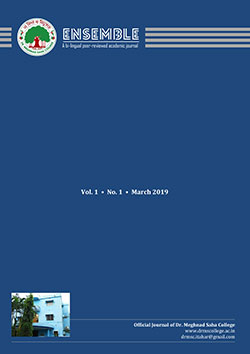Emotional Intelligence of Post Graduate Students: A Primary Data Centric Analysis
Abstract
Our emotional intelligence (EI) indicates our capability for learning the various practical skills that are based on its components: self-awareness, managing emotions, maturity, empathy, and social skills & social competencies. Most of the emotions and feelings are well-formed in raising up in the family. Family plays an active role to build constructive emotions. An emotional person is capable to set his/her own goal according to his/her strengths and weaknesses. S/he can also critically evaluate himself/herself. Family helps individuals to maintain a healthy balance between emotions and logic. Generally, children who belong to a joint family, get more opportunities to be familiar with the different emotions. Se/he tries to behave according to their family members. Se/he has to realise others’ point of view too that motivates them to live together.
The paper attempts to find out the emotional intelligence level of Post Graduate (PG) students; compare their E.I and dimensions of emotional intelligence with gender and family type. A descriptive survey method is employed for conducting the present study. Students pursuing PG studies have an average level of emotional intelligence. Though male students possess higher emotional intelligence than the female counterparts,the difference is not statistically significant. Similarly, there are no statistically significant results among joint and single types of family in terms of emotional intelligence.
Keywords: Family Types, Gender, Self- awareness, Managing emotions, Maturity, Empathy and social skills
https://doi.org/10.37948/ensemble-2020-0202-a012
Views: 1891



